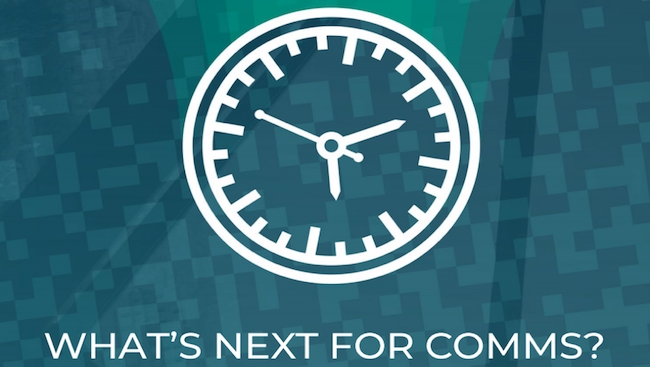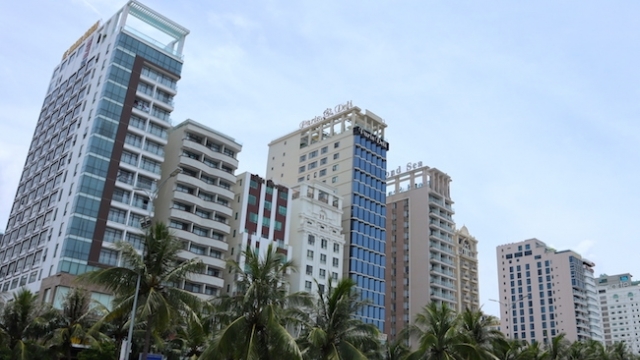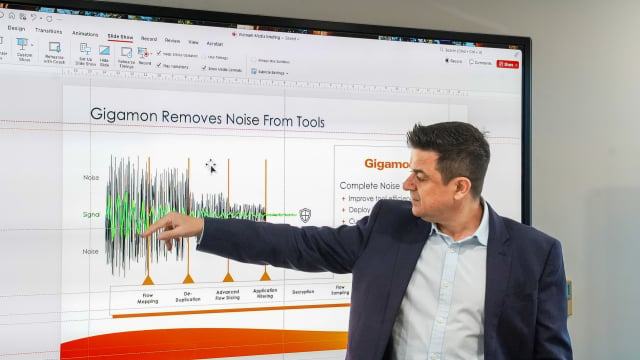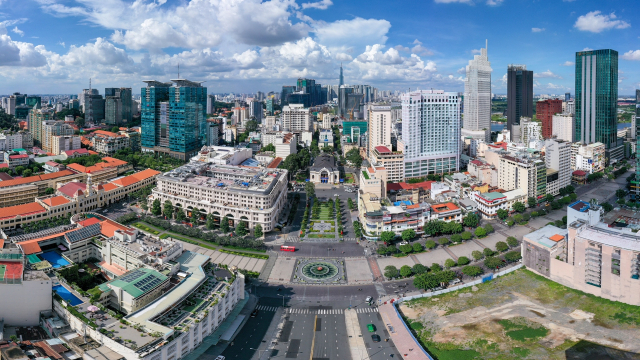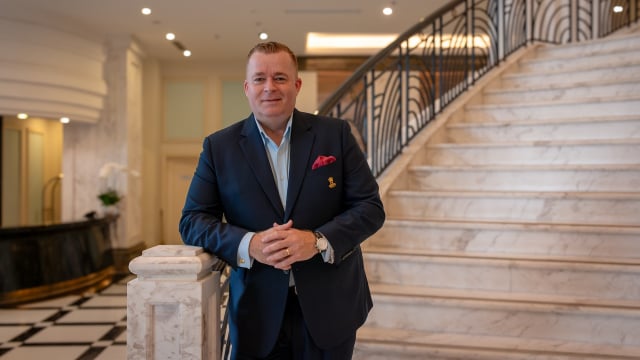Leader Talk
Distinct business philosophy of Philip Morris International
There’s no secret at all for enterprises to achieve a leading position in a highly competitive market. One of the first steps is for a brand to speak and act authentically.

Vietnam has effectively controlled the Covid-19 pandemic since the early stage. However, the prediction about the end of this pandemic in the world is impossible, putting enterprises in an unprecedented crisis.
Marian Salzman, senior vice president, global communications for Philip Morris International said that the tobacco company had to assume there would be some impact. However, as in previous times of economic and social turbulence, they expect to show resilient performance while keeping their commitment, especially about a smoke-free future.
She affirms that thanks to PMI’s 73,000 employees around the world remaining fully committed and united, the business continues to operate as normally as possible in this unprecedented situation and she believes they would emerge even stronger from this period.
Especially, the company is essentially disrupting its business from the inside out. “I can’t think of any other business that has attempted such a transformation before. Certainly no other tobacco company”, said Marian Salzman.
What have you personally learned in the last two months of coronavirus? Has the job become easier or more challenging?
Marian Salzman: If there’s one thing this fast-moving novel coronavirus has demonstrated, it’s that the unimaginable can happen—and very quickly. Let’s hope that more countries look to the positive example of how Vietnam handled the pandemic and that we beat it sooner rather than later.
As is true for just about everything else right now, our job as communicators has become more challenging in these past months. Not because what we do has drastically changed as we’re still working to connect with stakeholders, whatever that target group is for each brand, but because the conditions in which we’re working have so drastically changed.
Like everyone, we’re navigating the new normal. We’re identifying the fine line we need to walk - balancing business continuity with the crucial need to put people first, to operate in a way that is humanistic and authentic. Again, it’s not far from the ideals and goals we had pre-Covid-19, but it’s been made more challenging simply because we are all facing greater challenges just going about our daily lives.
What should be the role of business leaders during this period?
Marian Salzman: In times of crisis, society expects companies to demonstrate responsibility and solidarity in supporting local communities. At the same time, business leaders must act with urgency, demonstrate care, and inspire others. Right now, we really need sober, smart, values-driven, and focused leadership.
Society expects to see leaders in action, leaders who can think critically, guide efficiently, communicate transparently, and exude empathy.
The crisis will eventually - hopefully soon - end, but what’s important is to see how we get out if it and what will be the lessons learned. This is where the role of business leaders becomes critical, as they need to demonstrate that we can act together, connected, and united.
In your opinion, how should a company behave in these uncertain times?
Marian Salzman: We want to see companies behave in ways that show they are concerned about protecting their employees/customers/communities from the current pandemic and the economic tsunami it’s generating. We want to know that, to the extent companies can, they are sincerely contributing to practical solutions.
Underlying it all is a simple ethos: People come first. In light of the current crisis, we don’t have time to wait for companies to put together lengthy assessments of what they should do, when, and what they’ll get in return. We need immediate action that’s far bigger than anything a company would contemplate under less extreme circumstances.
What’s the secret for companies to achieving a leading position in a highly competitive market?
Marian Salzman: I would say that there’s not one single secret - or, really, no secret at all. One of the first steps is for a brand to speak and act authentically. Building on that foundation, a brand needs to create a connection with its customers and then strengthen and deepen that relationship. It’s also important in a highly competitive market to create differentiation to set your brand apart from competitors.
For PMI, that has been our company’s commitment to create a smoke-free future. We understand that the best option is never to start smoking or to quit if you do, but those who would continue to smoke deserve smoke-free products that are a better alternative.
In order to achieve our vision, we are essentially disrupting our business from the inside out. I can’t think of any other business that has attempted such a transformation before. Certainly no other tobacco company.
What is the first thing that you believe businesses will do after the situation normalizes?
Marian Salzman: Even when businesses are able to re-open, creative marketing and business approaches will be a must.
Restaurants, for instance, will need to rethink their operations to maintain some level of safe distancing. What will 50 per cent capacity of diners look like? Will customers be asked to submit to temperature checks at the door? Will service staff use personal protective equipment?
We can all take a page from the creative thinking we’re seeing around us (on our screens) as we work to evolve brand value, and not just in how we market and sell but in how we create a deeper connection with our customers and the communities in which we operate.
What impressed you most about some of the companies that have adapted well during this crisis and have supported communities in the fight against the pandemic?
Marian Salzman: The business of professional sports gets high marks for innovation. In the U.S., Major League Baseball is working on plans to play the entire season in Arizona once they get the green light to no longer shelter in place.
UFC president Dan White plans to host televised fights on a private island. The British Grand Prix has plans to hold races without fans in the stands.
Marriot International CEO Arne Sorenson was already a positive role model before the pandemic, since announcing last year he was diagnosed with pancreatic cancer. He has been upbeat and brave in his battle, and his video in mid-March only reinforced that reputation. It wasn’t just the fact that he was forgoing his salary-after all, he wasn’t the first or only leader to make that decision-but it was his manner of speaking to his employees. He was direct, positive, and plainspoken; just what these times call for.
It’s been fascinating to watch those and others that are responding to the new normal most quickly. The ability to pivot, revamp, and reimagine is critical. Even after the pandemic has receded, businesses and other organizations will need to recognize that their old continuity plans require an overhaul. There will be plenty of lessons to be learned from those entities that have shown greatest agility during the shutdown.
How do you evaluate the role of social media during this crisis? Creating solidarity and giving comfort or increasing anxiety?
Marian Salzman: For much of the last quarter century, we’ve engaged in a public debate about the virtues and vices of life online. Regardless, most of us embraced the convenience and reach of digital media - but we were still ambivalent about its impact and what we were being asked to sacrifice in return.
Many of us had a sneaking feeling that screen-based living was a poor substitute, a lazier, morally inferior version of the “real life” that “should” take place face-to-face with physical objects in physical space. The Covid-19 crisis has fundamentally reframed that view.
Simply put, the online world has become our lifeline. In the grip of this pandemic, it’s no longer just how we communicate and entertain ourselves; it’s how we do our jobs or attend school, procure our supplies, and reach out for help. As important, it is the only way in which we can interact with our fellow humans without fear of contracting or passing on the virus. Even as people are keeping their physical distance, they’re managing to spend time together, thanks to social media. Virtual has become vital.
Even though we’re practicing physical distancing, we seem to be more connected than ever. Everything is happening online; there are so many webinars and master classes, everyone is trying to send a message and earn some money - but, how to be different? Are the rules of communication the same online as in the “real world”?
Marian Salzman: That connection is very real; we call it “social solidarity.” Even as people are keeping their physical distance, they’re managing to spend time together. All the same, social media has often been likened to the Wild, Wild West of communications, where anything goes. In the face of that chaos, here are a few rules that I follow:
Choose your battles wisely and rally your troops. Be polite, but firm. Above all, engage with bullies in public. Remind the “haters” that you’re human - a real person with a real life, a real family, and a real response to pain and relentless attacks. And let friends and colleagues know what’s happening so they can have your back. Humor is a powerful weapon when you can pull it off. Greta Thunberg should be offering a master class.
And here’s an important one: listen. Many of us marketers haven’t quite mastered that skill but it’s essential. I have found that while some people rant and rave simply to bully or provoke, others are genuinely aggrieved. Yell back, and they won’t hear a word. Sit back, digest what they’ve said, and reply with a polite, considered response, and you might just turn a rage fest into a conversation.
We should all remember that we’re playing the long game. One-upping or exposing the hypocrisy of someone on social media may make you feel good, but scoring a point off someone is never as valuable as getting your point across.
Thank you very much!
Vietnam's hotels suffer huge damage from coronavirus
Vietnam turns semiconductor vision into action
The global semiconductor industry is being reshaped by geopolitical tensions, shifting supply chains, and the surge of digital technologies.
Cutting red tape in APA approvals to speed up tax negotiations
The change in APA approval authority is expected to shorten processing time and enhance business proactiveness in international tax negotiations.
Enterprise cybersecurity is under threat from the inside
As hybrid cloud systems grow more complex, Vietnamese enterprises are struggling to detect cybersecurity threats moving laterally within their own networks.
Breakthrough for the international financial center ambition
The submission of the draft resolution on Vietnam’s international financial center to the National Assembly heralds a new developmental era for the country.
How leadership philosophy redefines hospitality in Nha Trang
More than just running a 5-star resort, Kristian Petersen is redefining the art of hospitality with a humane and sustainable leadership philosophy.
When organic becomes an inspiring wellbeing lifestyle
For Tyna Huynh, co-founder of Drinkizz, organic is not just a food choice but a way of life that fosters a deep connection between people, nature and community.















